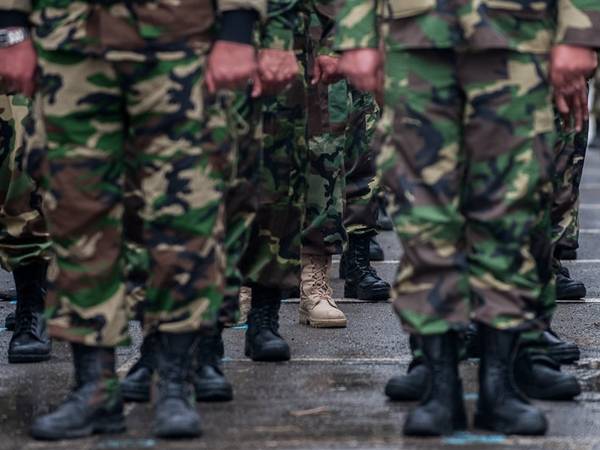The Mayor of Tehran's persistence in constructing a mosque at one of the capital's parks, despite public objections, may be linked to the Basij militia's involvement in quelling anti-government protests.
The Mayor, hardliner Alireza Zakani, along with other officials, say the construction of a mosque at Gheytarieh Park is in response to "popular demand" for providing places of worship for park users. The officials have also argued that the mosque would not significantly limit the park's space – nor would it harm its several-hundred-year-old trees.
Critics however, say there are already numerous mosques near the park, frequented by only a few worshippers during prayers. Some religious figures and activists have vehemently opposed Mayor Zakani's plans, particularly his intention to build mosques in all of the capital's parks.
“Building mosques is a community act of faith, not a municipal duty … Building parks, building highways, developing urban systems, optimizing roads, etc., are the duties of the municipality, which, praised be God, it does awfully little for,” Seyed Saeed Lavasani, a former Friday prayer Imam of Lavasan in northern Tehran tweeted on X.
One of the reasons cited by critics for the mayor’s insistence that mosques need to be built in parks stands out from the rest: a behind-the-scenes agreement between the mayor and the Islamic Revolutionary Guards (IRGC) and other authorities to expand the network of mosques, as well as the Basij militia bases stationed at them, across the capital.
People opposed to construction of the mosque at Gheytarieh Park measure the girth of the trees that have to be felled.
The Basij paramilitary force, which operates under IRGC command, has always been at the forefront in suppressing anti-government protests, alongside other security forces.
Didban-e Iran news website in an article entitled “Demystification of Construction of a Mosque at Gheytarieh Park of Tehran” contended that the mayor’s zeal in building mosques drives from an agreement with the IRGC to provide more bases for housing Basij forces.
Instead of paying attention to the poor southern areas of the city, the Mayor of Tehran has begun plans to expand the network of mosques in the northern areas of the capital where public discontent is at its greatest,” the article read.
While arguing that construction of a mosque in Gheytarieh park without the consent of the public would backfire and make them hate Islam – and mosques as its most important symbol – Abolfazl Najafi-Tehrani, a cleric and social media activist, alleged that Zakani’s real plan is “to build Basij bases under the guise of the mosque”.
Mosques have played an important role in the security structure of the country since the Islamic Revolution of 1979. Many mosques across the country have previously housed the paramilitary Basij militia.
The militia, which recruited civilian volunteers from mosques to fight in the Iran-Iraq War (1980-1988) and acted as neighborhood police, was established by the order of the founder of the Islamic Republic, Ayatollah Ruhollah Khomeini, soon after the Revolution.
Until their dissolution in 1991, committees of the Islamic Revolution, also established in 1979 by Khomeini’s order, were also often stationed at mosques. Until their dissolution in 1991, they also took on the role of police and secret service in conjunction with security forces including the Revolutionary Guards, police, intelligence ministry, and Basij.
In the past few years, the Islamic Revolutionary Guards officials, particularly Brigadier General Hasan Hassanzadeh – commander of Mohammad Rasulullah Corps in Tehran Province – have often spoken of the implementation of a plan to “create Islamic neighborhoods” centered around mosques. In July 2023, Hassanzadeh said the plan, which was projected in 2017, had been implemented in 700 of the capital’s neighborhoods.
“Mosques and Basij Resistance bases should play a greater role in the cohesion of neighborhoods. The function of a mosque should not be confined to purely religious activities and their focus must include cultural and social functions alongside religious and devotional ceremonies,” he said.
Hassanzadeh has met with the mayor of Tehran several times in the past couple of years to discuss the municipality’s cooperation with the Basij.
In November 2021, addressing the members of Tehran City Council, Hassanzadeh said the Basij had 2,500 bases in Tehran and underlined the importance of “Islamic neighborhoods” and utilizing the “astonishing potentials of the Basij”.
In the same speech, he complimented Zakani, a former head of the Student Basij in universities, as “the most Basiji mayor of Tehran since the Revolution”.
